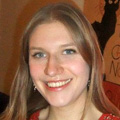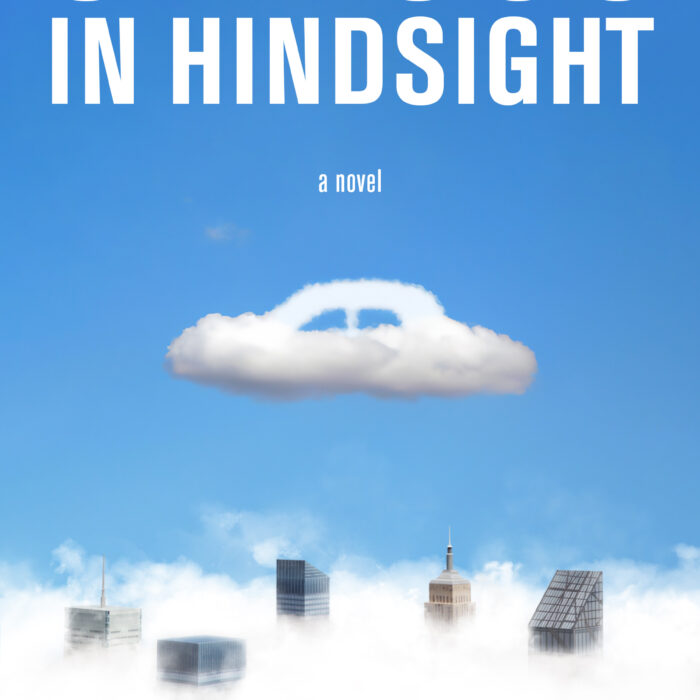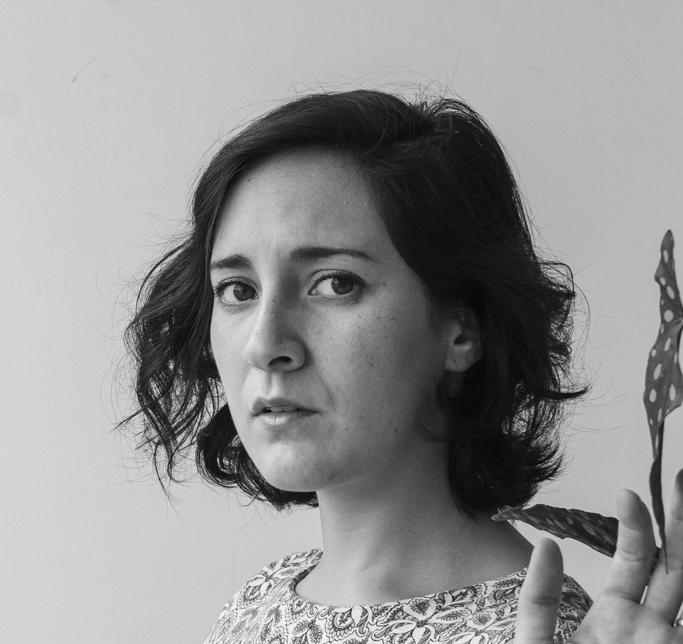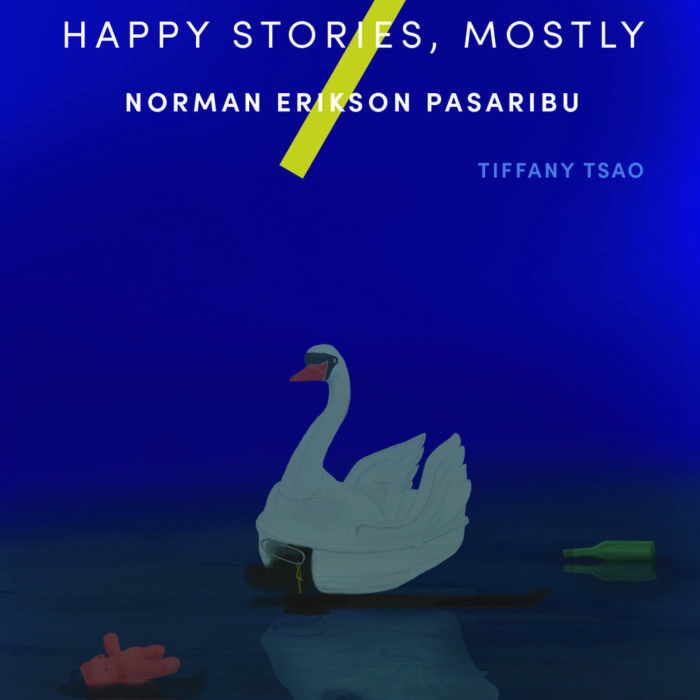You have no items in your cart. Want to get some nice things?
Go shoppingJack Wolf lives in Bath, where he is currently studying for a PhD. His debut novel, The Tale of Raw Head and Bloody Bones, was published in January by Vintage. A dark, beautiful and impeccably-researched take on the 18th century novel, it has been widely praised by reviewers.
The troubled Tristan Hart wants to become an enlightened London doctor but he finds himself drawn into the dark and dangerous world of English folklore and the gruesome legend of Raw Head and Bloody Bones. Tristan becomes convinced that the terrible Raw Head is after him. Is her right, or merely insane? Does Raw Head really exist? And if he does, how can Tristan defeat him?
In this interview with Robin Stevens, Jack talks about the process of writing the novel, his fascination with folklore and the 18th century and what it feels like to become a published author.

Tell me about what drew you to the 18th century as a setting for the novel.
I’ve always had an interest in the 18th century, and I’ve always read – and not just read but enjoyed reading – 18th century literature. I guess it was just a question of the period appealing to me, and then me having this sort of bloody-minded interest in making my book as historically accurate as was appropriate. That’s quite important, because I wasn’t writing a work of history. There has to be a balancing act in a historical novel between what it actually true and what people expect, and so although Raw Head is not a work of history I felt that I needed to have my facts accurate. I hope they are.
What works did you use to get yourself into the right mindset?
Henry Fielding is a character in the novel, so I used his works quite a lot – partly to get a sense of who he was and partly to get a sense of how to write an 18th century novel in a way that I would actually enjoy. I’ve also read things like Richardson, but although my supervisor at uni is very into Richardson – Clarissa is her favourite text of all time – for me it’s much too much. I wanted my book to have a sense of fun, as well as accuracy.
In terms of its word capitalisations and spelling choices, Raw Head even looks like an 18th century novel. Did it seem organic to write the book in the style it’s presented in?
I went through a two-stage writing process: I wrote it all longhand first, without capitalising, but when it went onto the computer every noun became capitalised. Originally it was very random because that’s how real 18th century writing is – they hadn’t standardised anything. But ultimately I decided that because Raw Head’s narrator Tristan has something that I think is almost like an OCD, he would capitalise every noun rigidly.
The way you compare Enlightenment rationality and superstitious belief in fairies is very interesting. The two belief systems seem much more connected than we might expect today – not at all mutually exclusive!
No, they weren’t mutually exclusive at all. It’s quite extraordinary what comes out about that. I posted on the Raw Head Facebook page about the Mary Toft rabbit hoax. A surprising number of people fell for it, but to modern sensibilities it is utterly unbelievable. In the 18th century there were massive gaps in science – people really didn’t have the basic grasp of scientific principles that we take for granted, so their whole worldview was much more fluid. The tradition of fairies having existed in England is ancient, all the way back to the dark ages. In Tristan’s case, even though he has scientific aspirations, he struggles not to believe in fairies. I think it was so engrained in English culture that it was difficult to shake.
How did you do your research for the book?
I read a lot of non-fiction, a lot of folk tales and a lot of folk songs. I have a very weak and pathetic background in folk music, and that turned out to be very useful for Raw Head. That was the basis for the novel, and it was only later, when I was working on tidying it up, that I began to research the medical side of things. That took me to some extraordinary places, things I would never have looked at. I read neurological journals aimed at medical students – I tried to understand what they were saying, but some things I still find mind-boggling.
Did you make any unexpected discoveries during the research process? What stood out for you?
The understanding of stroke during that period turned out to be so much more advanced than I had expected. I had to go back and check my research on that, because I found it so incredible – but it appears that that was the case. In the 18th century there really was a sophisticated understanding of stroke causes – and that in itself is interesting, because stroke was an illness that for centuries before had been thought to be caused by the fairies.
 Raw Head reminded me of novels like The Crimson Petal and the White and Pure – like them, it’s very much of the era it’s describing, but you’re also responding to the 18th century novel in a consciously 21st century way. What would you say to that?
Raw Head reminded me of novels like The Crimson Petal and the White and Pure – like them, it’s very much of the era it’s describing, but you’re also responding to the 18th century novel in a consciously 21st century way. What would you say to that?
That’s right. In a recent review, a reviewer asked “what is the point of an imitation of Tristram Shandy when one might just as well read Tristram Shandy?” First of all, Laurence Sterne wouldn’t have written this novel. He’d have probably read it in the dark, and then not admitted to reading it. That’s the whole point – the 18th century couldn’t have published this, unless it was under the counter. There’s too much in it that would have been seditious, or obscene, and of course the way I write about atheism would have been a complete no-no.
How did your original idea for the book come about, and did it change during the writing period?
I thought, when I started writing Raw Head, that I was going to write a novella! Originally I just had a character called Tristan – although I had a strong sense of him, I didn’t really have a plot. The only bit I had was the love-story between Tristan and Catherine. Then I realised that the character needed a goal in life, and that was when the medical stuff crept in. I wanted Tristan’s goal to be rather overwhelming! Nathanial, too, was there from the beginning. Originally I wanted to use the relationship between him and Tristan to explore the Gothic trope of light and dark, but give it an Emily Brontë twist with the fair character being evil and the darker skinned character being good. As things fell out, though, it all became much more complicated than that.
Raw Head is a very dark and bloody novel – did you ever have your agent or your editor telling you you needed to tone it down or change parts of it?
Well, my agent originally wanted to calm it down, because it had such a frenzied energy. So I wrote a few chapters of it in a calmer vein, and my agent took one look at them and said, “This isn’t working.” Nobody ever complained about the darkness, though. It is a dark book, but I think that darkness works.
What was the writing process like? You have a Creative Writing MA, is that where the novel began?
Well, the first few chapters were written on the course, more or less – though some bits survived and some had to be rewritten. I found the peer review process a hugely supportive experience. I didn’t have a huge amount of confidence in myself at that stage – I knew that I liked writing, but I didn’t know if other people would like it. I also didn’t know if I’d have the energy to sustain a longer piece. After I’d left, a few of us from the course carried on looking at each other’s work – but the last section was written on my own, the classic sitting in a corner thing!
What happened then? Did you start sending it out to people?
No, actually! I’d met my agent when he came to give a talk to my MA course. Then about six weeks after graduating I got an email asking to have a look at my work. I couldn’t believe it – I thought somebody was having me on. I asked around to see if anyone else had had a similar email, and it turned out that they hadn’t. So I went to the meeting, approaching it like a job interview and thinking that I really had to impress, but it turned out to be pretty much the other way around! When we’d met previously he’d expressed interest in the sort of work I was doing, so I figured that if he liked my writing he would be the right person to take my book on – and he did. That saved me the headache of having to hoick it round agents. I was very lucky to find an agent who essentially wanted the book I had written.
How does it feel to be a published author? What’s been the best part of the experience so far?
I don’t think it’s sunk in yet! I had my first real reading at Toppings Bookshop in Bath – the people there were mostly people who I knew, so it was a very friendly start. Holding the book for the first time was quite extraordinary. The thing that you’ve known as words on a screen or a sheaf of papers suddenly appearing as a physical object – it was quite an extraordinary moment.
What advice would you give aspiring writers? Is advice even possible, or is there just a magic ingredient?
I think the magic ingredient is bloody hard work. It doesn’t matter how talented you are – if you don’t put in the work, you won’t write the book. I’ve wanted to be a writer probably all of my life. At times I’ve also wanted to be an actor, a singer and a biologist, but that was always as well as the writing.
So, what are you writing next?
It’s another novel set in the 18th century, but with no connection to Raw Head. I wanted to dump Tristan out of my mind. It’s not a Gothic novel – I’ve been thinking about the Romantic writers of the late 18th century, and I’m playing around with some of the ideas that they used. It has three narrators, and it’s set in 1789 against the background of the French Revolution, which then triggers a slave revolt in Grenada. Its main theme is oppression. One of my characters is a female black slave, who on her return to Grenada becomes involved in the slave revolt. I’ve also got a character who is transgendered, and another who is my slave Cordelia’s owner. Like Tristan, he’s struggling with faith, although not so intensely. I’m not too sure how things are going to pan out yet – although I’ve got more plot than I had with Raw Head, I go with the flow. I’ve got a general outline and that’s it. I think you have to give your characters a certain amount of space. It’s like kids – if you’re too rigid, you’ll lose the spark.
Do you think that you’ll stick to the 18th century in future? What does not interest you, theme-wise?
The present! The past and the future I find hugely interesting. Before Raw Head I wrote another 18th century novel, set in the 1760s. It was absolutely dreadful, but it did teach me how not to write an 18th century novel. Thankfully, that will never see the light of day.
Where do you see yourself in 10 years’ time?
If everything goes to plan, in 10 years’ time I’ll be writing my third or fourth novel. That’s the plan, anyway. In 10 years’ time I’ll probably be looking back at this and thinking, God, what an idiot. But that’s where I’d like to be – writing and possibly doing some teaching as well.
To find out more about the fascinating world of Raw Head and Bloody Bones, visit the book’s Facebook page, curated by Jack himself, or read his series of blogs for the Vintage Books website.
You can see Jack next on the 14th of April at the Cambridge Word Festival 2013, where he will be making up part of the Debut Writers panel alongside Melissa Harrison and Kevin Maher.

Robin Stevens
Robin started out writing literary features for Litro and joined the team in November 2012. She is from Oxford by way of California, and she recently completed an English Literature MA at King's College, London. Her dissertation was on crime fiction, so she can now officially refer to herself as an expert in murder (she's not sure whether she should be proud of that). Robin reviews books for The Bookbag and on her own personal blog, redbreastedbird.blogspot.co.uk. She also writes children's novels. Luckily, she believes that you can never have too many books in your life.





Hooray! My interview with Jack Wolf about the fantastic #rawhead is up @LitroMagazine now: http://t.co/nEGIgenp4n